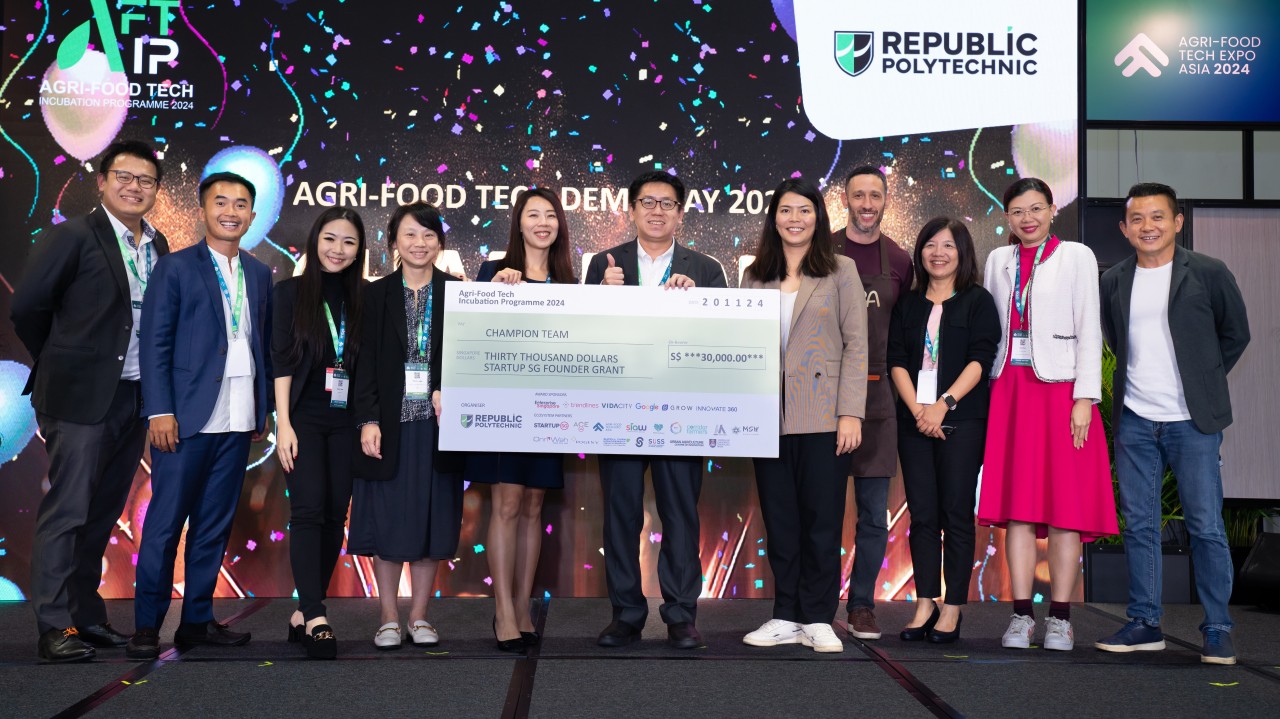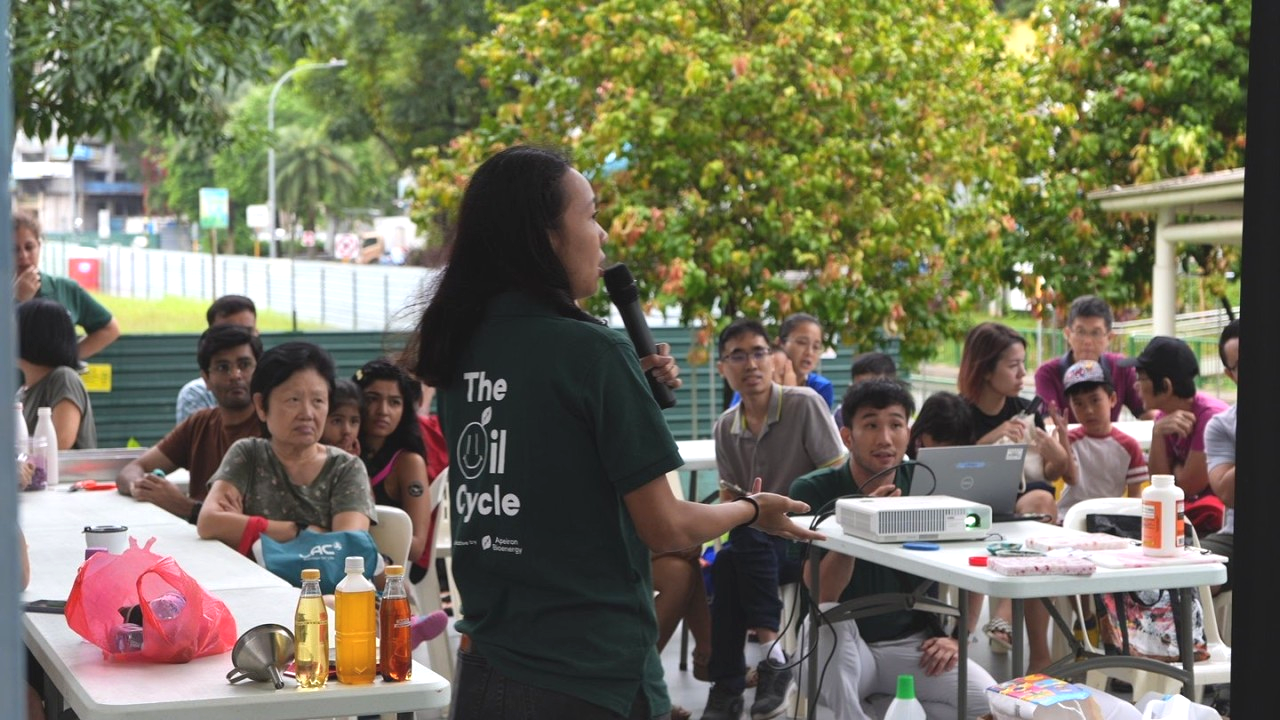Sowing Seeds of Success: Ray Poh and the Evolution of Artisan Green
Interview by: Ophelia Zhu
Share This!
Ray Poh is the founder of Artisan Green, an indoor farm company growing local and pesticide-free crops.
Their products can be found in familiar supermarkets and grocery stores around Singapore, and the company is quickly growing in terms of both operations and land.
Question 1: You started your career in your family’s business in the casino gaming industry and transitioned into farming–something very different. Was there anything that carried over from your previous experiences that helped you?
Transitioning from the gaming industry to farming has been a unique journey, blending familiar business fundamentals with entirely new technical specifics. While the core principles of business remain consistent, the nuances of farming required me to start from scratch. One of the key lessons I carried over from the gaming industry is the importance of networking.
In many instances, our perspective can be quite limited; we only know what we know. By engaging and interacting with others, we broaden our horizons and gain a more comprehensive understanding of our field. This expanded vision has been invaluable in navigating the complexities of farming and achieving success in this new venture.
Question 2: Artisan Green is partnered with Siemens; can you talk a bit about this partnership and how it has impacted company operations and goals?
Early in our journey, we recognized a crucial distinction: while we excel in plant science, the engineering expertise needed to develop a robust platform was beyond our scope. Instead of building and managing an in-house engineering team, we chose to partner with Siemens, a leader in engineering. This collaboration allows us to merge our plant science expertise with their engineering prowess. We define the goals, and Siemens brings them to life on their platform.
Initially, our focus was on survival—getting our products to market. However, as we progressed, we saw opportunities for improvement and growth. We realized that merely replicating our current infrastructure wouldn’t suffice for our expansion plans. Our existing methods, tailored for a 300-square-meter farm, would lead to disproportionate labor costs if applied to a new 5,500-square-meter facility. This insight drove us to develop a new infrastructure from the ground up, supported by a sophisticated software platform designed for scalability.
The complexity of plant science demands significant manpower, especially for tasks that require specialized knowledge. To address this, we’ve integrated automation into our processes and are now moving towards digitalizing our plant scientists. By meticulously documenting our growing and operational protocols, we create a system where these protocols are automated. This acts as a force multiplier, allowing our scientists to focus on innovation rather than routine tasks. For instance, nutrient profiles for plants at different growth stages are automatically managed by our platform, enhancing efficiency and consistency.
Our strategic approach—leveraging partnerships and embracing technological advancements—ensures that as we scale, we maintain high standards of productivity and innovation. This synergy between plant science and engineering is the cornerstone of our growth strategy, paving the way for a more sustainable and scalable future in farming.

Question 3: What would you say are some of the biggest obstacles that you’ve encountered? What resources did you tap into to overcome these challenges?
Fortunately, our internal struggles have mainly revolved around the complexities of plant biology. Dealing with plants that don’t always “listen” to us has underscored the importance of our focus on plant science. However, another significant challenge in Singapore is land scarcity. As we looked to scale up, finding suitable space became a critical issue. Indoor farming requires specific parameters such as size, height, sufficient electricity, and the necessary permits, making it rare to find appropriate spaces.
After three unsuccessful attempts to engage private landlords to build a farm, we realized this approach was fraught with obstacles. We decided to redirect our efforts towards securing land through official channels. This led us to participate in the land tender process initiated by the Singapore Food Agency last year.
Our prior experiences with private landlords prepared us well for this land tender. We spent about a year preparing for the tender, utilizing the plans we had developed during our earlier attempts. This preparation allowed us to efficiently adapt our strategy for a Greenfield land tender project, ultimately setting us up for success.
By strategically shifting our focus and leveraging our experience, we navigated the challenges of land acquisition through a solid proposal that was eventually approved by the Singapore Food Agency in April this year. This approach has been instrumental in our journey to scale up and expand our farming operations in a sustainable and efficient manner.
Question 4: How has various partnerships, collaborations, and the community helped Artisan Green to where it is today?
Working with City Sprouts provides us with valuable exposure to market trends and developments. Rather than trying to build the market alone, we benefit from collective strength and information, united by a shared cause to advance the local farming industry. This collaboration enhances our understanding and impact within the industry.
In addition to our farming operations, I run a separate company called Merchant Brothers. We deliver a variety of food products to over 2000 customers in Singapore’s hotel, restaurant, and café sector. Integrating our farm’s produce with Merchant Brothers’ deliveries has proven advantageous. Each delivery includes not just vegetables, but also meat and seafood, increasing the overall basket value. This approach helps us distribute logistics costs more effectively, making the operation more efficient. Merchant Brothers wasn’t initially started to support the farm; it was a separate venture with my friend, now business partner, but we soon realized the synergies in delivery logistics.
Moreover, we collaborate with the Singapore Agro-Food Enterprises Federation (SAFEF) to aggregate and sell products under the SG Farmers’ Market brand. This partnership allows us to offer a wider range of products and achieve cost-effective logistics, benefiting both our business and the local farming community.
Building these relationships has been instrumental in deepening our market understanding and expanding our reach to end customers. By continuously learning from others and staying attuned to industry trends, we can innovate and adapt more effectively. This ongoing process of collaboration and learning is key to our growth and success in the competitive market landscape.
Question 5: What has been a rewarding experience with Artisan Green thus far?
As a consumer, we would usually visit supermarkets to purchase other people’s products. Now, seeing our own products on the shelves and knowing that customers are choosing them is incredibly fulfilling. The sense of achievement is amplified when we receive feedback from customers about our produce. Their input not only validates our efforts but also motivates us to continually improve and innovate. This connection with our consumers and the visible impact of our work in the marketplace provides a profound sense of fulfillment in our journey.

Question 6: The company seems to be growing very fast with additional farms and land in the recently awarded Tengah! What are your next goals and focus now?
Our current focus is on scaling the business, and to rely on strategic engineering to achieve this growth. We aim to complete our new farm and establish it as a showcase, not just for local audiences but for international players as well. In a time when many farms, both locally and overseas, are shutting down, we want to demonstrate that with the right business model, success is achievable in this industry.
Following this, our goal is internationalization. We aim to expand beyond the Singapore market, leveraging Singapore’s reputation as our platform whereby if we demonstrate success here, we are able to succeed anywhere.
With the recent land tender, we plan to diversify our range of produce significantly. We intend to expand from around 20 types of products to approximately 40, including leafy greens, microgreens, edible flowers, and more. These products will cater to both service and retail supermarkets.
Additionally, we are excited about enhancing our educational and corporate engagement initiatives. We plan to offer educational tours and corporate workshops, partnering with City Sprouts to bring these plans to fruition. This effort not only helps in educating the public and corporate entities about sustainable farming but also strengthens our community engagement and outreach.
Our strategic vision encompasses robust scaling, international expansion, product diversification, and community engagement, setting the stage for a sustainable and successful future in farming.
Question 7: Do you have any words of wisdom to people interested in sustainability?
For me, the pursuit of continuous improvement and learning is paramount. It’s essential to keep reading and expanding your knowledge because there’s always more to discover. Embracing a lifelong learning mindset is crucial, as you don’t know what you don’t know. This ongoing process of education and self-improvement is fundamental to personal and professional growth. By staying curious and committed to learning, we can adapt, innovate, and thrive in an ever-changing world.
Question 8: If you were reincarnated as a plant, what would you be?
If I were reincarnated as a plant, I would choose to be an orchid, Singapore’s national flower. Plus, as a non-edible plant, I wouldn’t have to worry about being eaten!
Share This!
Read More


Speak with Us
Enquire with us if you would like to know more, or join hosted tours of our Vidacity spaces.
